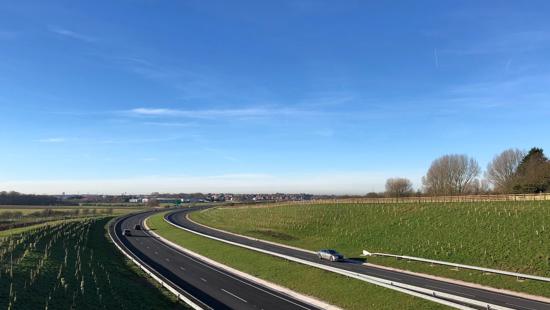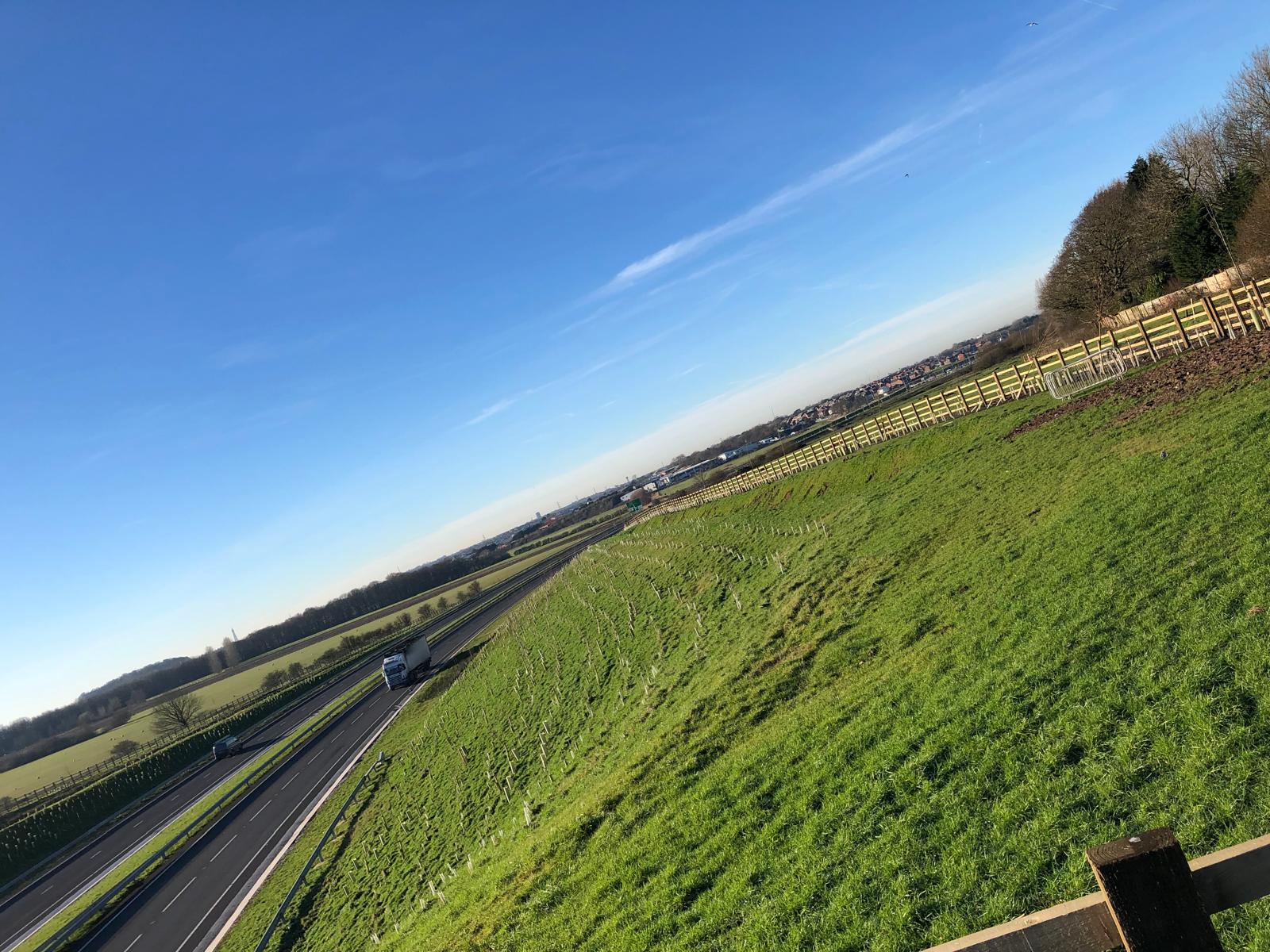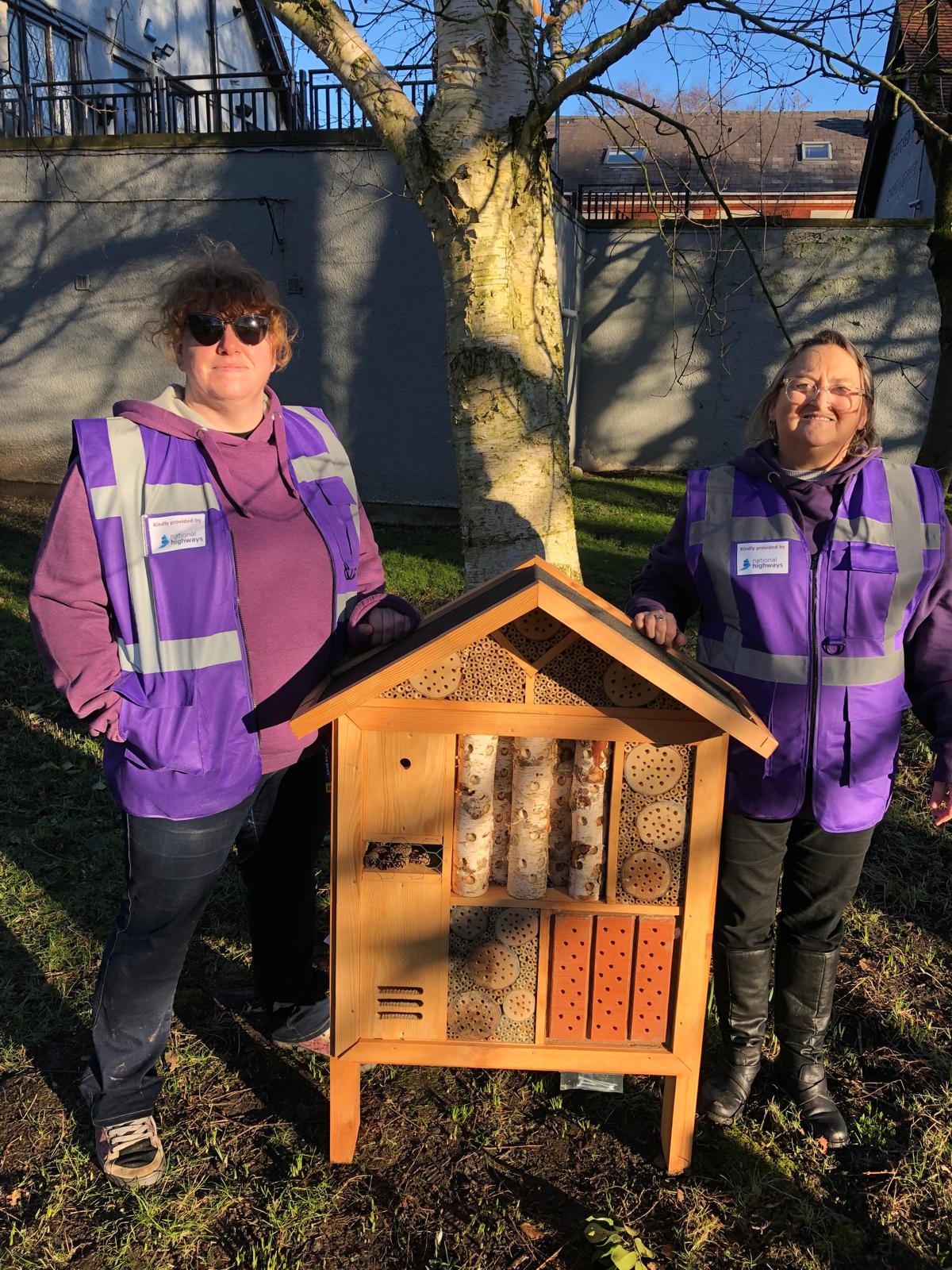National Highways bypass delivers environmental legacy for generations to come

A transformative National Highways bypass in Lancashire will deliver an environmental legacy for generations to come thanks to the planting of hundreds of thousands of shrubs and trees.
The final planting of 360,000 plants, including more than 72,000 trees and shrubs, has recently been completed at the A585 Windy Harbour to Skippool bypass, creating an 18.2 per cent biodiversity net gain, leaving a lasting legacy beyond the functional benefits of the bypass alone.
National Highways project manager Dan Moore said:
“This scheme has gone above and beyond environmentally, not only delivering National Highways’ objective of ensuring there is ‘no net loss’ to biodiversity but creating an 18.2 per cent net gain. That is a magnificent testament to the hard work of everyone involved at every level.
“Our projects are not just about building roads; it’s about building a legacy, and that includes improving the environment for the communities we are involved with, helping people enjoy healthier lives.”
The completion of the three-mile bypass was celebrated last year. Built around the village of Little Singleton it has brought much-needed capacity to deliver smoother, safer and more reliable journeys for everyone, reducing congestion and lessening the impact of traffic on the local community by removing a major bottleneck to Fleetwood.

Enhancing the environment was a key consideration of the project.
Ponds, woodland and species rich grassland areas have also been enriched or newly introduced as part of the scheme, but the work didn’t stop there, with further environmentally friendly improvements including safe crossings for wildlife beneath the bypass and the creation of bird mitigation areas for special species.
Local road Mains Lane was also upgraded to improve safety for cyclists, walkers and horse riders.
The bypass has been successfully delivered by National Highways and its partners Kier, with the team also working to provide a positive legacy through their community engagement initiatives, many undertaken with the environment in mind.

One example included supporting the award-winning RHS Poulton In Bloom group with regular planting and litter picking tasks, donating striking high-visibility purple jackets to keep volunteers safe as they continue to undertake their work, and providing a bug hotel as the group strive to improve the local environment in and around the town.

The A585 project team’s efforts were recently rewarded with a National Highways Industry Award for its environmental sustainability, recognising the successful work undertaken to limit the impact of the scheme, protect wildlife and incorporate environmental improvements.
Jon Hornsby, Project Director at Kier said:
“The A585 Windy Harbour bypass was a great scheme to deliver. We are proud to have been awarded the National Highways Industry Award for delivering environmental sustainability, recognising how our environmental team worked hard to limit the impact of the scheme, protect wildlife, incorporating environmental improvements.
“We are passionate about positively impacting the communities where we work. Whether it’s planting 72,000 trees and shrubs with our partners or supporting the work of the RHS Poulton in Bloom group, we want to improve the environment at every level and are proud to leave this lasting legacy.”
National Highways is one of the largest landowners in England with over 30,000 hectares of green land, providing valuable habitats for wildlife, working closely with the conservation sector.
The government company, which operates, maintains and improves the country’s motorways and major A roads, is committed to enhancing the environment along the strategic road network.
The company set out in 2020 to halt the decline of biodiversity across its activities by 2025 and is proud to have met this challenging commitment of ‘no net loss’, in doing so becoming one of the leading promoters of biodiversity in the country in terms of delivering biodiversity units.
Stephen Elderkin, Environmental Sustainability Division lead for National Highways, said:
“At National Highways, our work goes beyond operating, maintaining and improving roads; we’re investing in the environment and communities surrounding our network, helping to unlock the creation and enhancement of habitats.
“Increasingly we have been working directly with organisations in the conservation sector, including charities and small businesses, and many of these projects have prioritised nature-based solutions, practices which involve working with nature to address climate and human-induced impacts.”
To find out more about National Highways’ environmental work and how the company is championing biodiversity across the Strategic Road Network, click on the company's web page: https://nationalhighways.co.uk/about-us/Championing-biodiversity-on-our-network/
Picture captions:
Planting along the A585.
RHS Poulton in Bloom members with their donated hi-vis jackets and bug hotel.
Industry award honour for environmental sustainability: From left Liam Harkin, Environment Lead Kier, Faye Gurney, National Highways Project Support Officer, Eleri Evans, National Highways Assistant Support Officer and Dan Moore, Project Manager.
Notes to Editors
National Highways is the wholly government-owned company responsible for modernising, maintaining and operating England’s motorways and major A roads.
Real-time traffic information for England’s motorways and major A roads is available via the Traffic England website, local and national radio travel bulletins, electronic road signs and mobile apps. Local Twitter services are also available.
For further information please contact National Highways' press office (24hrs) on 0844 693 1448 and select the most appropriate option:
Option 1: National enquiries (9am to 5.30pm) and out of hours for urgent enquiriesOption 2: North West (9am to 5.30pm)Option 3: Yorkshire and North East (9am to 5.30pm)Option 4: West Midlands (9am to 5.30pm)Option 5: East Midlands (9am to 5.30pm)Option 6: East (9am to 5.30pm)Option 7: South East (9am to 5.30pm)Option 8: South West (9am to 5.30pm)
